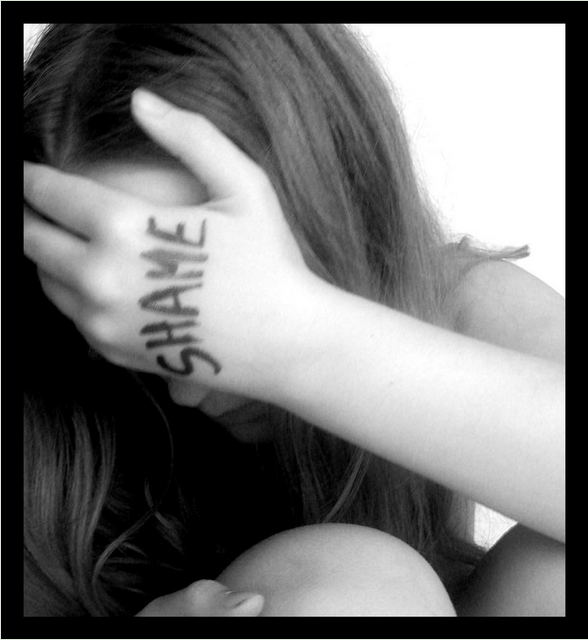Dawn eloquently expresses the observed contrast in people’s responses towards physical injury and psychological illness. Both are equally real issues.
We applaud her courage in taking this first step by sharing her World Mental Health Day reflections with us. We are proud of you, Dawn, and know for sure that your story matters to us.
We hope for more brave souls to come forward with their stories. Together, we can stomp out mental health stigma!
I’ve seen posts urging people to write for mental health awareness. It’s something my psychologist has encouraged me to do too. “I’d need more than a little courage,” was my usual response.
But this has been on my mind, especially in light of a recent hand fracture I sustained: the stark contrast between dealing with a physical injury. And a psychological one.
And yes, I can compare both experiences now.
My very reluctance to write the above statement – subtle as it is – is already a telling sign about how different it is to suffer from a mental disorder as opposed to a physical one.
Talking About My Hand Injury
I had no problems announcing I’d fractured my hand, although it came with its own psychological distresses – sadness, anxiety, fear.
But not shame.
I wasn’t afraid that people would make judgements about me for hurting my hand. I couldn’t imagine anyone would tell me the injury was my fault.
I didn’t feel abnormal, inadequate or ashamed to have a fracture. True, it was frustrating to need help, but I didn’t think that there was an inherent problem with me.
With this injury, I’ve been getting only encouragement and positive support to ‘hang in there’. People around me made the time and effort to show their care and concern.
(Not) Talking About My Mental State
However, I’m not sure if this would be the same case if I had announced, “Hey, I’m struggling with mental illness right now,” and discussed it the same way I talked about my hand fracture.
For one, I’ve never succeeded in truly talking about it. In both episodes, I succumbed to the shame and illness. I pretty much disappeared socially.
For another, I’m not even sure it’s possible to do something like that; to talk about mental illness.
Discussing a physical injury is surrounded with good cheer and positivity because broken bones generally allow you to retain your mental and emotional faculties.
But the very nature of mental illness robs you of your ability to discuss it with clarity once you’re struck with it.
In that sense, isolation may well be self-imposed. Because shame keeps you silent.
Even if there are compassionate and caring people around, they’d never know to adequately express it.
And it’s a vicious cycle: keep silent in your head, you see no one. And it feels like no one gives a damn. Then you begin thinking of more reasons why no one would care.
There’s no logic to it, but logic has ceased to exist. I personally feel that’s one of the worst things of being unwell.
Even if you did break through that ‘thought prison’ to share your difficulties, there’s a high possibility that someone would respond negatively – blaming, shaming, or dismissing, and ultimately judging you – in contrast to a response to physical injuries. When was the last time you heard someone accuse you of being lazy and incompetent when an injured person fails to do the heavy lifting?
Shame And Helplessness
It’s much more taboo to make fun of or belittle physical handicaps.
People say supportive things because they can identify with physical injuries better, whether or not they’ve experienced it before. They seem to have an idea of what they can do to help and not complain about it.
Yet, with mental illness, it can be hard knowing what to say or do. It seems much easier to ignore it and keep quiet.
This silence often gets interpreted as ‘they’re disgusted with me’ or ‘they don’t care’, strengthening the bars on that shame-induced cage of isolation sufferers face.
There’s no instinctive understanding on how to help as an external party. Often, not even the sufferer knows how others could help. Or perhaps, they’re too ashamed to ask.
I see it as akin to this situation on the train: Someone on crutches enters, there are no seats available. The other passengers refuse to give up their seats, pretending to be asleep. As for you, a person who’d like to help, you haven’t a seat to offer.
This leaves you with limited options:
1) ignore the situation completely,
2) get angry and glare at someone until they offer their seat, or
3) actively ask a seated passenger to get up, while risking dirty looks.
It’s a challenge to help when your own resources are limited. No one likes feeling helpless. It’s much easier to push that responsibility to someone else when it comes to mental health awareness.
But what if you had an inkling of an idea, an awareness of how to help?
I’ve seen this movement building overseas, helping people to understand what it’s like and what they can do. It’s powerful, and so I think it’s important to get these conversations started. Even if it’s scary or difficult to share.
Because this story has to start somewhere.
Dawn is in her twenties and suffers from Borderline Personality Disorder for over four years and was hospitalized in 2010 after a thwarted suicide attempt. She is managing well now, but remains critically aware of the mental ‘work’ she needs to do to avoid going down the ‘black hole’. Coming from a sporting background, she is keenly aware that mental illness doesn’t discriminate, for even the ‘tough’ athletes get hit.
Photo Credit: Shame by ‘broken emotion’ on deviantart.com


